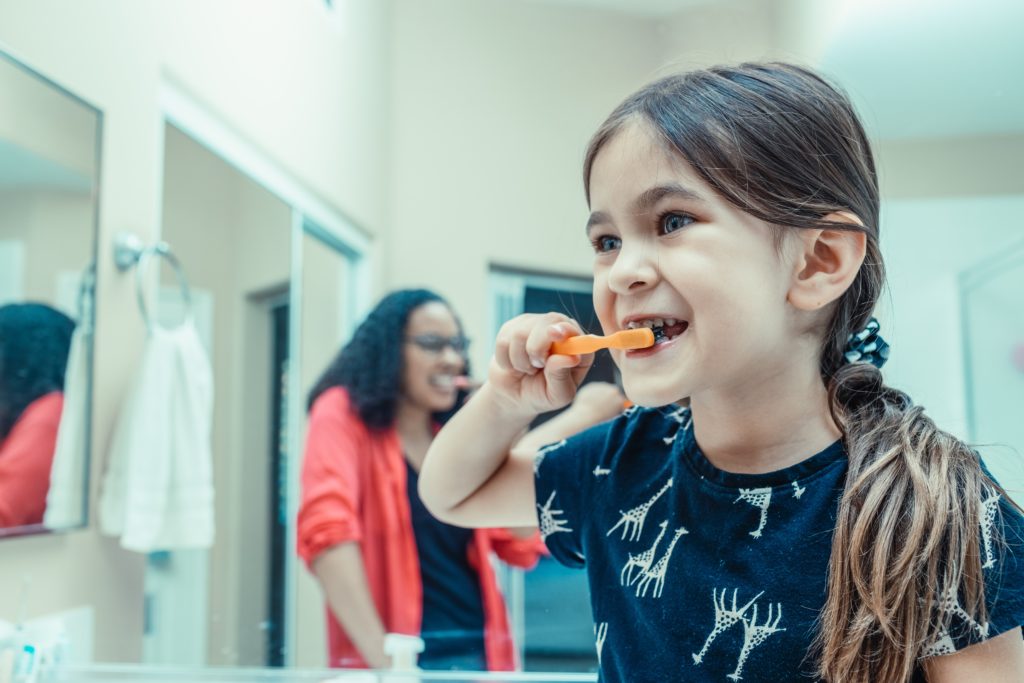Toothbrushing
Tooth decay is still a problem in modern society. It’s critical to acquire good dental hygiene habits. Primary teeth play a major role in enunciation, chewing, and digestion, so they need to stay healthy and in place until permanent teeth grow which is between the age of six and eleven. Since dental health is imperative for our young children it is soo important that we take dental health seriously even in child care settings.

A daily toothbrushing routine is recommended. At a center the best time to brush teeth is after lunch. If children brush their teeth in the morning and then brush there mid day then they brush their teeth at night the benefits in terms of prevention of tooth decay far exceed the inconveniences. For educational purposes even if being able to do the routine two to three days a week is better than nothing.
For infants who have no teeth, it’s a good idea to clean the gums and the inside of the mouth with a wet cloth . Toothbrushing with a toothbrush can start when teeth are present. For children in programs should be closely supervised and take place after lunch. It’s best practice to have children brush their teeth at least two times a day and preferably at least one of those times at night to clean away all food particles in the mouth.
A child size toothbrush is the main tool and would be best if parents provided with a waterproof label and a covering. The toothbrush should have soft bristles, small head, and a rubber gripped handle. It is best to change them at least two to three times per year or when the bristles are bent or damaged.
If a pandemic hits it is best to replace the toothbrushes and stored in a sanitary way. The ceramic tooth brush holders with lids are best and the bristles should be allowed to air dry while not touching other toothbrushes. It is also best practice to wash the tooth brush stands weekly to cut down on germs an d bacteria.
It’s also O.K. to not utilize toothpaste as some children can not spit appropriately and could be harmed from the fluoride in the toothpaste. It is imperative that educators supervise this time and set clear expectations and guidelines on prohibiting the sharing of toothbrushes.
There are essential guidelines to assist children in brushing their teeth. For children
- Two and three years old: Limit the number of guidelines to three so they don’t get discouraged
- Assist them with holding the handle not the bristles.
- Suggest a game like tickling the tooth
- Remember that fine motor skills are developing at this age and it does not allow them to brush teeth efficiently.
- Preschool children can learn a few precise motions.
- They can keep their mouths open and brush the outer surface of their teeth in the direction of tooth growth.
- Complete teeth brushing takes about 2 minutes
- Each tooth should get about five strokes
- Give a shatter proof mirror to children so they can check that their teeth are well brushed.
- Use a puppet to show children the right way to brush their teeth
- Role play dentists checking your teeth
- Have a dentist station in the dramatic play area so that children can act it out on the dolls
- Use visual props such as a giant cardboard toothbrush
- Use a sticker chart for brushing their teeth daily
- Plan a visit to the dentist office or invite one to the center.
